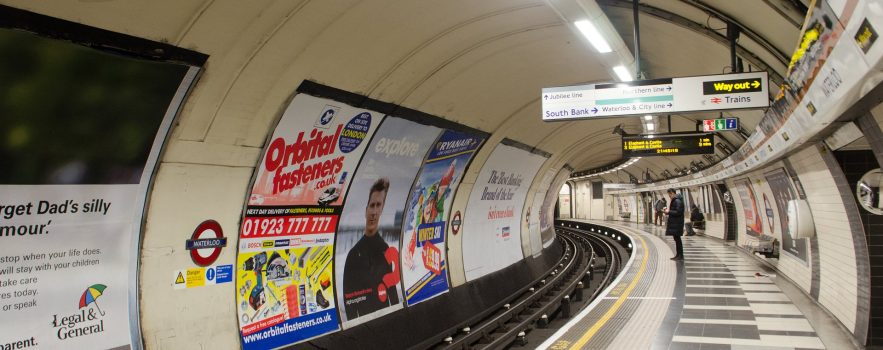A study published in PLOS Medicine found that restricting the outdoor advertising of high fat, salt and sugar (HFSS) foods and drinks across the Transport for London (TfL) network significantly decreased the average amount of calories purchased by households every week from these products.
Led by scientists at the London School of Hygiene & Tropical Medicine (LSHTM), and involving a research team from several Universities that included Unit scientists Dr Jean Adams, Dr Thomas Burgoine, Dr Oliver Mytton and Professor Martin White, the study used data on nearly two million grocery purchases of HFSS foods and drinks to estimate the effect of the policy, which saw restrictions on advertising implemented across the London transport network in February 2019. This includes the London Underground, the TfL Rail network, and bus stops.
They found the policy was associated with an estimated 1,001 kcal (6.7%) decrease in average weekly household purchases of energy from HFSS products compared with what would have happened without the policy. Most strikingly, the average weekly purchases of energy from chocolate and confectionary fell by 317.9 kcal (19.4%).
Policies that restrict the advertising of HFSS products have been promoted as potentially effective tools to reduce the purchase and consumption of HFSS products, with the aim of improving diet, reducing obesity and diet-related diseases and tackling health inequalities. Study first author and LSHTM scientist Dr Amy Yau, a former PhD student at the MRC Epidemiology Unit, said:
Many governments and local authorities are considering advertising restrictions to reduce consumption of high fat, salt and sugar (HFSS) products as part of obesity prevention strategies. However, evidence of the effectiveness of such policies, especially away from broadcast media, is scarce.
“Our study helps to plug that knowledge gap, showing Transport for London’s policy is a potential destination for decision-makers aiming to reduce diet-related disease more widely.”
This study is published as The Grocer reports that at least 70 local authorities across the UK are planning to follow TfL’s example, and in some cases impose even stricter controls over which types of food and drink products can feature on local authority controlled advertising spaces.
- Read the LSHTM news article
- Read the paper: Amy Yau et al. Changes in household food and drink purchases following restrictions on the advertisement of high fat, salt, and sugar products across the Transport for London network: A controlled interrupted time series analysis. PLOS Medicine 17 February 2022. DOI:10.1371/journal.pmed.1003915

 MRC Epidemiology Unit
MRC Epidemiology Unit